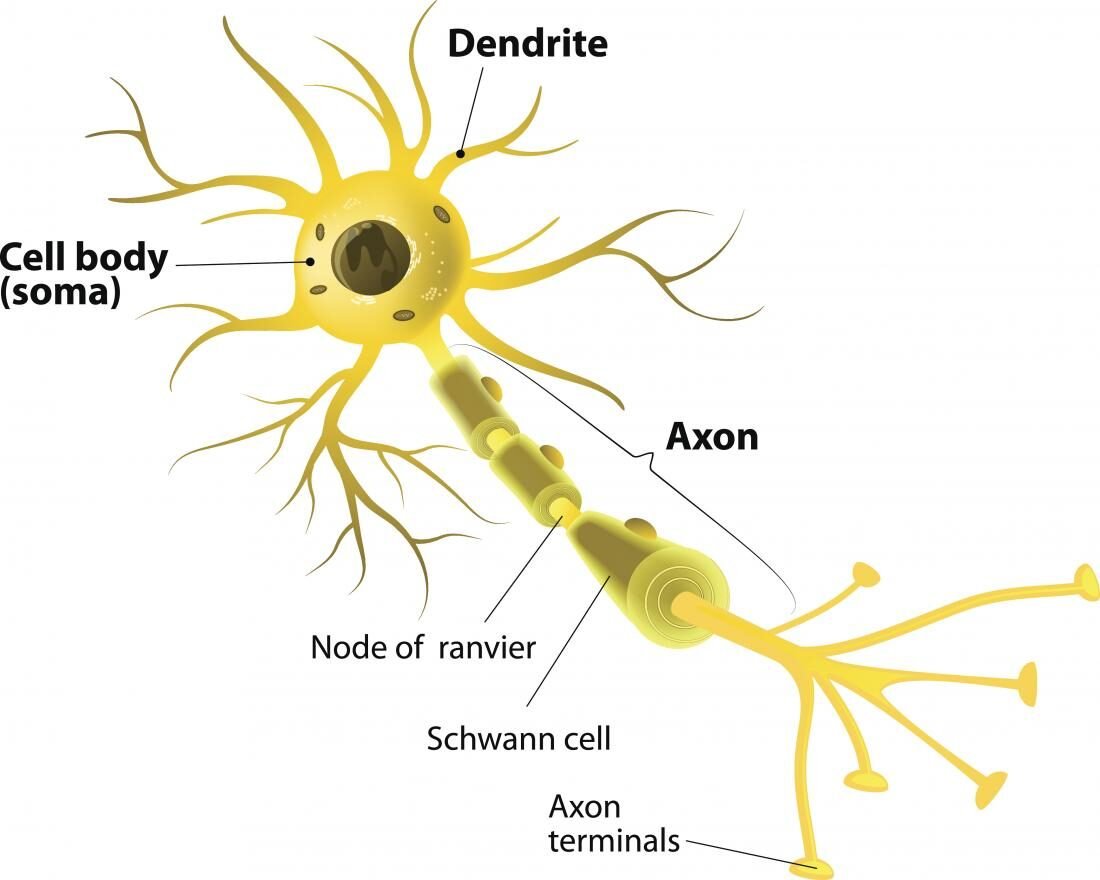December 3rd: A Day of Empowerment or Just a Show
Every year, December 3rd is celebrated worldwide as the International Day of Persons with Disabilities. The theme for 2024 is Amplifying the leadership of persons with disabilities for an inclusive and sustainable future,” which calls for a stronger leadership role for PWDs in shaping a more equitable world. However, in Gilgit-Baltistan, the government’s efforts to empower persons with disabilities remain mere lip service.
While the government claims to be working for the welfare of persons with disabilities, the reality on the ground is far from satisfactory. The government’s efforts are limited to just observing this day, with no concrete steps taken to address the pressing issues faced by persons with disabilities. The focus is on advertising and showcasing their efforts rather than taking tangible steps to empower persons with disabilities.
One of the major issues is the lack of accessible infrastructure, including schools, healthcare facilities, and public buildings. The government has failed to provide basic facilities, leaving persons with disabilities to fend for themselves. Furthermore, the government has not implemented the GB Disability Act 2019, which was passed by the assembly. The act remains a piece of paper, with no rules or business framed to implement it.
The government needs to take concrete steps to address the issues faced by persons with disabilities. Instead of just distributing assistive devices, the government should focus on creating opportunities for persons with disabilities to become self-sufficient. The government should establish special education complexes in every district, with hostel facilities, so that persons with disabilities can access education and live independently. Moreover, the government should ensure that schools have accessible infrastructure and trained teachers to support students with disabilities.
Let’s make December 3rd a day of true empowerment for persons with disabilities. The government must move beyond mere lip service and take tangible steps to ensure inclusivity and equality for all.
Being abled but disabled at the same time
Most of the time, what humans perceive is limited to the visible—the rational body: the eyes, mouth, nose, and ears. These physical markers form the basis of societal judgments about an individual’s capabilities. However, this narrow focus often blinds society to a deeper truth: the immense potential and resilience of people with disabilities. While their abilities may not always align with conventional expectations, their contributions can be just as, if not more, valuable in unique and transformative ways.
The real irony lies in how the so-called “abled” are often disabled in their perspective. They fail to see beyond the physical and recognize the inherent worth and capabilities of people with disabilities. This is not merely a personal shortcoming but a societal failure, rooted in long-standing biases and structural inequalities. In many cases, people with disabilities are viewed through a lens of pity or as recipients of charity rather than as individuals who can actively contribute to and enrich their communities.
Globally, this issue is particularly striking. The country of Pakistan is home to numerous communities that are well-off in terms of wealth and social capital. These communities have the resources, networks, and influence to drive change, yet they often overlook the potential of people with disabilities. This neglect perpetuates a cycle of exclusion, where those with disabilities are marginalised not because they lack ability but because society lacks the vision to include them.
However, this also presents a significant opportunity. Imagine if these affluent communities leveraged their wealth and influence to champion inclusivity. They could:
- Foster Inclusive Education: By funding accessible schools and scholarships for students with disabilities, they could open doors to education that is often denied due to physical or financial barriers.
- Champion Employment Opportunities: Through targeted hiring practices and skill development programs, they could help integrate people with disabilities into the workforce, showcasing their productivity and creativity.
- Promote Social Integration: Community leaders could use their platforms to challenge stereotypes, celebrate the achievements of people with disabilities, and promote a culture of acceptance.
- Innovate in Accessibility: Investing in technology and infrastructure that prioritize accessibility could make public spaces, transportation, and digital platforms more inclusive.
- Support Advocacy and Empowerment Initiatives: Collaborating with organizations like ours, these communities could amplify the voices of people with disabilities, ensuring their needs and rights are front and center in policy and development discussions.
Ultimately, the true disability lies in the inability to see beyond physical differences and to recognize the full spectrum of human potential. By shifting this perspective, society, particularly its more privileged segments, can unlock a wealth of untapped talent and drive meaningful progress towards a more inclusive future.
The I do not care fallacy
Most of us who live in the West, especially those of us who are emigrants, often find ourselves distanced—both physically and emotionally—from the realities of our home countries. Over time, many become engulfed in what can be called the “I do not care” fallacy. This mindset fosters a sense of detachment from the issues back home, driven by the belief that these problems are no longer relevant to our lives in the diaspora. It’s a fallacy because, whether we acknowledge it or not, our home countries remain integral to our identity, and their struggles often ripple out to affect us and future generations in subtle but profound ways.
Why Does This Detachment Happen?
- Comfort of Stability: Many emigrants enjoy the relative stability, security, and opportunities that Western countries provide. This comfort can make the hardships and challenges of our home countries seem distant or irrelevant.
- Focus on Immediate Surroundings: The pressure to adapt and succeed in a foreign environment often leads people to focus exclusively on their immediate lives—careers, families, and social circles—leaving little room to engage with issues from home.
- Disillusionment with the System: Corruption, instability, or lack of progress in home countries can breed cynicism. People may feel that their contributions or concerns would make little difference.
- Generational Shift: For second and third-generation emigrants, the connection to their ancestral homeland may be more cultural than practical, leading to a further dilution of concern for current affairs.
The Impact of the “I Do Not Care” Fallacy
This mindset, however, can be harmful in several ways:
- Loss of Collective Responsibility: Diaspora communities often have the resources, knowledge, and influence to drive change back home. Their apathy means that these opportunities are missed, leaving critical gaps in areas like education, healthcare, and social development.
- Erosion of Identity: Disconnection from one’s roots can lead to a gradual loss of cultural identity, which often weakens the bond between generations in diaspora families.
- Missed Advocacy Opportunities: Living in the West provides access to platforms where voices can be amplified. Failing to use these platforms to advocate for issues in home countries diminishes the global awareness of those challenges.
Communities:
- Missed Financial Support: Diaspora communities have significant financial potential, often contributing to remittances. However, a lack of targeted support for disability-focused initiatives means that crucial resources fail to reach those who need them most.
- Limited Access to Global Networks: Many disabled individuals lose out on opportunities to benefit from global exposure, such as scholarships, training programs, or technological advancements, which diaspora members could facilitate.
- Insufficient Advocacy: Advocacy for disability rights and inclusion in home countries is often weak. The diaspora, with its access to international platforms and policy circles, could amplify these voices but rarely does so.
- Underdeveloped Infrastructure: A more engaged diaspora could help fund and develop infrastructure for accessibility, such as inclusive schools, workplaces, and public spaces. In its absence, disabled individuals are left navigating an environment that marginalizes them further.
Reconnecting for Impact
To bridge this gap, diaspora communities need to recognize their potential as catalysts for change. Here’s how they can make a meaningful difference:
- Support Disability-Focused Initiatives: Collaborate with local organizations working to empower people with disabilities. Financial aid, skills training, and mentorship programs can transform lives.
- Promote Inclusive Development: Advocate for policies and programs in home countries that prioritize accessibility and inclusion. Use influence to push for systemic changes.
- Create Opportunities: Facilitate connections between disabled individuals and global opportunities. Scholarships, remote work, and exchange programs could help them gain the skills and confidence needed to thrive.
- Leverage Technology: Diaspora members in tech industries can introduce affordable assistive technologies and digital tools to improve the quality of life for people with disabilities back home.
- Foster Awareness: Use platforms in the West to highlight the struggles and successes of disabled individuals in home countries, shifting narratives and challenging societal biases.
By breaking free from the “I do not care” fallacy, the diaspora can transform from passive observers to active contributors. In doing so, they can open doors of opportunity for those who need it most, ensuring that people with disabilities are not left behind in the journey toward progress and inclusivity.
MOU WITH NORTHERN AREAS TRANSPORT COOPERATION
Gilgit-Baltistan Goodwill Movement and Northern Areas Transport Corporation Forge Partnership to Support People with Disabilities
Location: NATCO Head Office, Gilgit
In a significant move to improve the quality of life for people with disabilities (PWDs) in Gilgit-Baltistan, the Gilgit-Baltistan Goodwill Movement (GBGM) and Northern Areas Transport Corporation (NATCO) have signed a Memorandum of Understanding (MoU). This partnership will focus on providing relief equipment to PWDs across Gilgit-Baltistan, with deliveries to be facilitated by Daraz.
The agreement was formally signed at an event held in Gilgit by Farhan Baig, President of GBGM, Mahesh Sarwar, Project Manager of GBGM, and Rashid Feroz, General Manager of Cargo at NATCO.
Key Aspects of the Agreement:
- NATCO will provide delivery services across various regions in Gilgit-Baltistan.
- The agreement spans three years, ensuring a sustained commitment to initiatives supporting PWDs and other disadvantaged groups.
- GBGM will identify and prioritize the specific needs of PWDs, coordinating with NATCO to ensure safe, reliable, and timely delivery of assistance.
The partnership underscores a shared mission to foster an inclusive and supportive environment for individuals with disabilities in Gilgit-Baltistan.
Farhan Baig and Mehwish Sarwar highlighted the importance of this collaboration, stating, “This partnership marks a pivotal step toward improving the lives of PWDs in remote areas. NATCO’s support will be instrumental in making essential aid accessible across the region.”
Rashid Feroz, General Manager of Cargo at NATCO, emphasized the corporation’s commitment to welfare, adding, “GBGM has shown a deep commitment to the well-being of people with disabilities in Gilgit-Baltistan, and we are proud to support their efforts through our welfare initiatives.”
Courtesy: Gilgit Media Network

Rational choice and ableism from DPOs
The rational choice we believe many make is rooted in one key question: “How convenient is this issue for me?” This stereotype-driven approach allows people to think, “I am not disabled; therefore, I won’t have these difficulties,” which creates a false sense of comfort. It is the easy way out—a mental shortcut that allows individuals to ignore the realities of ableism, reassuring themselves that these issues belong to someone else. From high-ranking officials, like a Chief Minister, down to local community leaders, this mindset sustains an illusion that dealing with disability inclusion is irrelevant to their own lives. But this notion is objectively false and contributes to a cycle of harmful inaction.
In reality, disability is not a niche issue. It is a fundamental human rights issue. Everyone, directly or indirectly, interacts with individuals facing disabilities. When leaders or decision-makers choose avoidance or indifference, they are essentially opting for convenience over justice. This mindset arguably violates the basic human rights of disabled individuals by limiting their access to opportunities, spaces, and roles within society.
By “human rights,” we mean the systemic exclusion of disabled individuals from workplaces, educational settings, and economic opportunities. In fact, a brief literature review conducted by the Goodwill Movement reveals that the economic inclusion of disabled people brings measurable benefits—higher productivity, enhanced community engagement, and strengthened social support networks. Yet, these truths remain buried under convenient excuses.
“Isn’t It Difficult?”
Another perspective that enables ableism is the idea that interacting with or including disabled individuals is inherently challenging. When we correspond with potential donors—via email, calls, or meetings—we often notice a subtle reluctance to engage fully. It feels as though many donors wish to “get through” these conversations so they can focus on something more familiar or comfortable. They seem eager to shift to another topic, to avoid exploring the profound value and necessity of true inclusion.
This brings us to a fundamental question: Are we merely servants to other’s convenience? It does feel like it many times.
Disabled individuals deserve respect and engagement, not to be merely dismissed as an “inconvenient” task. The expectation that organisations like ours must cater entirely to the preferences of potential donors instead of being met halfway shows a lack of genuine commitment towards societal change. That being said, we will commit to those donor preferences who are on the same page as us, and we have done so in the past
The cycle of trapped bias
Goodwill has been striving since 2021 to advocate for the rights and support of persons with disabilities in Gilgit Baltistan and among its global diaspora. This work aims to create lasting, collective benefits by ensuring inclusive development and resources for individuals with disabilities. Yet, why do we still encounter resistance, limited resource mobilisation, and fragmented support from within the community and diaspora? Game theory could explain this
Could this be akin to a ‘Prisoner’s Dilemma’ situation, where individual stakeholders, despite having mutual interests in the cause, prioritize short-term gains or avoid risks over collaboration? Just as in the classic dilemma, if all involved parties cooperated, the collective outcome could significantly uplift lives and strengthen the community’s social fabric. So, what factors keep stakeholders from fully investing, and how can we break this cycle to foster true, sustained support?
Objective
The objective of Goodwill is to get more donations to fund more projects. Let’s call this D and F. D and F have a crossover.
Variables
Has Goodwill launched a donation site? Yes
Has Goodwill partnered with a third sector organisation? Yes
Bias
In the classic Prisoner’s Dilemma game, Prisoners A and B have four possible outcomes based on their choices to either cooperate (stay silent) or defect (testify against each other). Similarly, in donating to a cause or supporting a cause, people have the will to stay silent or ignore it. The will here, though is not a rational one but the unconscious bias that keep’s one eyes and ears closed to reality
White Cane Day
In a remarkable celebration of International White Cane Safety Day, we joined hands with Karakoram International University’s Department of Education to raise awareness about accessibility and safe mobility for the visually impaired.
This event stands as a testament to our commitment to empowering visually impaired individuals in navigating safely and confidently through the world around them. Those who are blind by birth are the navigators of society, than those who choose to be in sociopolitical chaos.
The day was filled with engaging awareness sessions and interactive discussions, shedding light on the importance of inclusivity and the daily realities faced by those with visual impairments. A heartfelt thank you to Doctor Qutoshi, Doctor Hadi Haideri, and our dedicated volunteers and participants who made this event possible.
Join us in the journey to promote accessibility and inclusivity for all in Gilgit-Baltistan!
#InternationalWhiteCaneSafetyDay #GilgitBaltistanGoodwillMovement #AccessibilityMatters #EmpowermentThroughEducation #InclusiveGB

The need for rationale Vs cost benefit analysis. What donors miss and hit.
This is our perspective, and we acknowledge that others may have differing views, which are valid and welcome. I understand that our same logic might apply to many places and situations, but I invite you to consider this scenario for a moment. Imagine you’re in a position to allocate a donor’s contribution of £5000. You have a critical decision to make, one that requires a thorough cost-benefit analysis. You could choose to invest this amount in supporting a student’s foreign education, a long-term investment that may yield returns only 20 years down the line, and perhaps even then only equal to the original donation. Alternatively, you could use these funds for something with a more immediate impact, such as healthcare, social care, or essential community support. My concern lies in guiding donors toward considering not only what they think is valuable but also what communities in Gilgit Baltistan may need most urgently.
A wise adviser once shared that in the UK, every national government, public interest (PI) firm, and donor is motivated to invest in the disability sector. There is an understanding here that investing in disability services, accessibility, and social care creates inclusive societies, boosts the economy, and empowers individuals with disabilities to lead fuller lives. This begs the question: why don’t we see this focus in Pakistan, particularly in areas like Gilgit Baltistan? Why is there a lack of targeted private investment directed at improving the lives of disabled individuals, who face some of the most significant barriers to education, employment, and social participation?
While short-term projects funded by donors are undeniably beneficial to society, sometimes producing immediate visible changes, I believe it’s essential to consider a broader perspective. Simon Sinek once said, “be different,” and this concept applies perfectly here. Why not stand out by addressing areas of unmet need? Why not focus on groups that are often overlooked and marginalized, like disabled individuals, and invest in creating lasting, equitable change for them? Inequality rules the mind
Inequality rules the mind
There’s also an undeniable sense of disparity that colors this discussion—a feeling of imbalance. In Urdu, there’s a phrase that loosely translates to “lack of awareness,” which captures an attitude that may contribute to why disability support is so underfunded. It is as if these issues are taken for granted, brushed aside without full consideration of their importance. This lack of awareness perpetuates an unequal society where certain needs remain unmet simply because they aren’t prioritized.
Let us do a thought experiment. Picture yourself as an elite in the world. Picture yourself with money, maybe 2.5 M$ is your monthly salary. Now imagine giving that to a disabled person
Let’s take a moment for a thought experiment. Picture yourself as one of the world’s elites, enjoying a life of abundance, with a monthly income of $2.5 million. Now, imagine what it would be like to invest even a fraction of that income into the life of a disabled person—someone facing barriers to education, employment, and daily life that we often don’t consider in our day-to-day existence. A small portion of such wealth, directed thoughtfully, could profoundly change the life of a person who lacks access to basic resources.
This disparity, however, reflects something much deeper—a mindset shaped by inequality. There’s an undeniable sense of imbalance here, an outlook that often ignores or underestimates the importance of disability support and social inclusion. In Urdu, there’s a phrase loosely translating to “lack of awareness,” which encapsulates this very attitude. Issues that don’t directly affect us are often taken for granted, brushed aside without adequate thought. This “lack of awareness” can perpetuate an unequal society where certain fundamental needs are unmet, simply because they are not prioritized.
When we look at places like Gilgit Baltistan, we must ask ourselves why this lack of investment in disability support persists. In the UK, for instance, governments, public interest firms, and donors increasingly direct resources toward disability services, accessibility, and inclusive social care. There is a collective understanding that supporting these areas builds an inclusive society, strengthens the economy, and enables individuals with disabilities to contribute and live fuller lives. But in Pakistan, particularly in areas like Gilgit Baltistan, private investment in disability support is almost absent. Why?
While it’s true that many donors focus on short-term projects that offer quick, visible benefits to society, perhaps there’s room for a shift. Imagine what might be possible if donors could look beyond short-term gains and recognize the profound, lasting impact of investing in underfunded areas like disability support. As Simon Sinek suggests, we can “be different.” Standing out sometimes means focusing on areas that are often overlooked and marginalized, like the disabled community, and creating equitable, lasting change for them.
The choice between funding a long-term goal like a foreign education or addressing immediate community needs in healthcare and disability support isn’t always easy, yet it’s essential to recognize the profound impact that can be made by addressing urgent needs. By guiding donors to consider not only what they value but also what communities in Gilgit Baltistan may urgently need, we encourage a holistic approach to development—one that’s deeply rooted in the immediate realities of those we aim to support.
Power & Culture – Ableism
The term ableism refers to discrimination in favour of able-bodied people. Ableism or in Loose Urdu, the ability to physically control one’s body has been a debate over decades. But what makes ableism so unique is that what we refer to Power & Culture : ableism thrives on it. Unlike Feminism, Ableism is non gender bias and non sex biased. Yes I do agree, that sexual relations and gender identity can affect it. However as social beings, ableism is still around everywhere.
As described in a earlier article, the pathological fear of ableism thrives upon society and by that effect culture. Ableism is not something measurable, though many disabled activists like Julia Harris and other people have highlighted the negative effects of ableism : there is something about it that we like, we thrive upon not just in Pakistan but across the world. One thesis/statement is that we like to be in a powerful seat or position whereby we can other the disabled/differently abled and we feel ‘ good ‘ about it.
Sociobiological theory
Now what does it mean by good? I am not referring to a pleasurable experience although we did see effects of it in Nazi Germany, that can have a article of its own and in Pakistan, where we daily blog from but somehow the human body has developed this feeling of protection amongst foreign experience’s.
Conclusion
Is there a way that we are not looking at this properly. Is Power over the disabled rooted from our biological needs described by Maslow. Should we not address this from a socio biological viewpoint?






